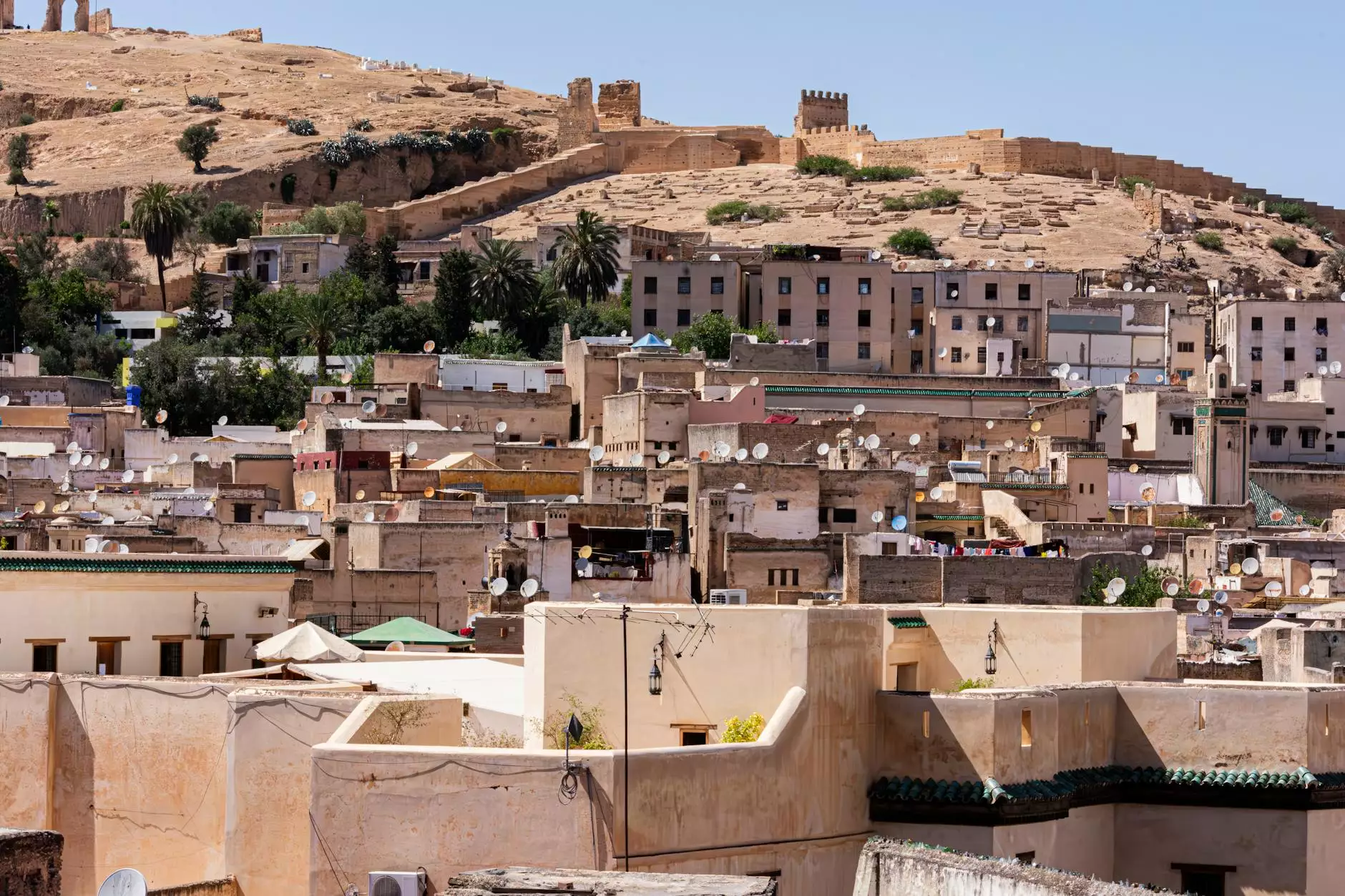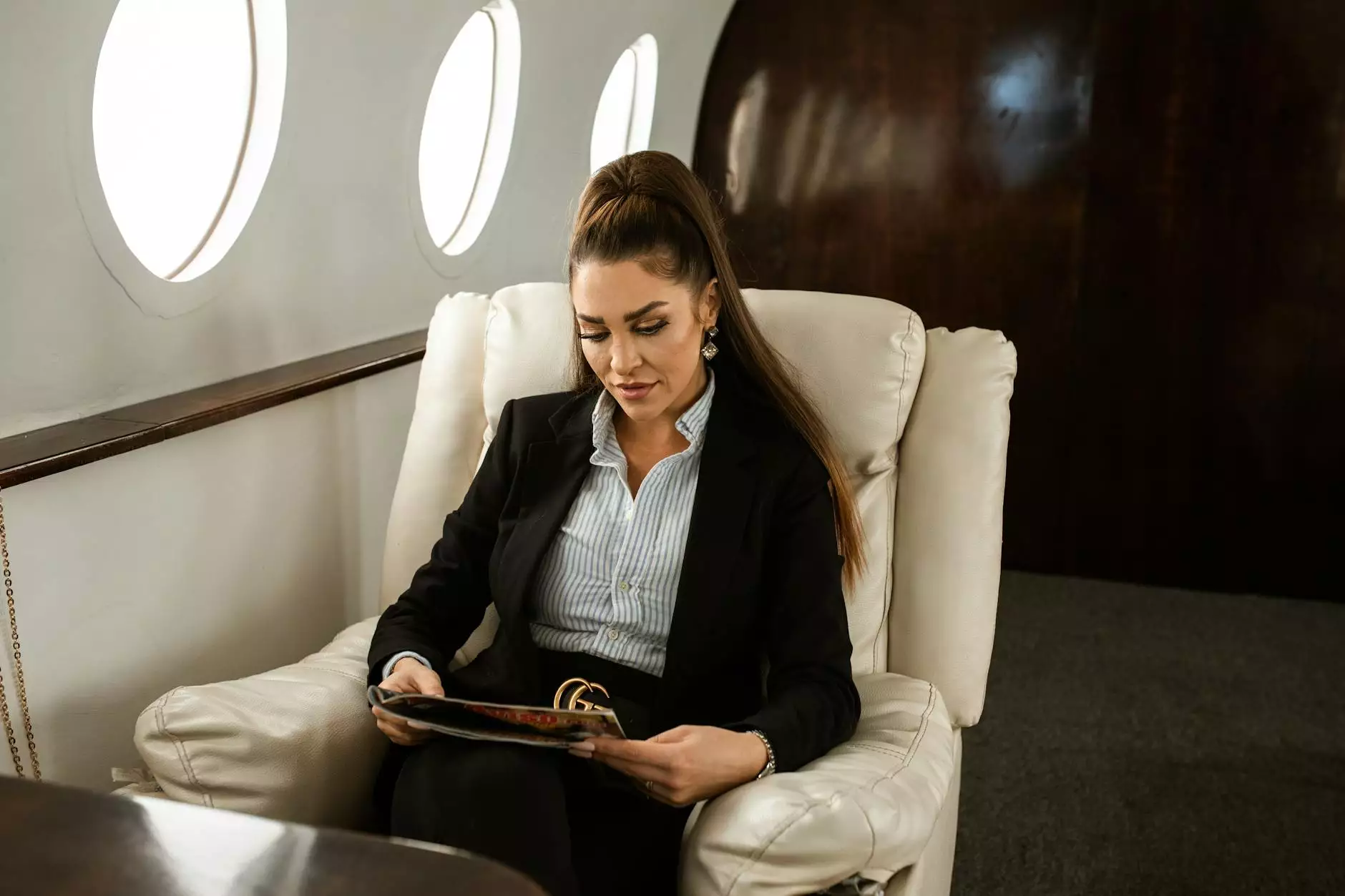The Captivating History of Fes

The history of Fes is not only a tale of a city but a narrative that encapsulates centuries of tradition, spirituality, and cultural dynamism. Founded in the 8th century, Fes has evolved to become a vibrant hub that attracts tourists from all over the globe. It stands as a testimony to Morocco’s rich heritage, making it an ideal destination for travelers seeking authentic experiences.
The Founding of Fes
Fes was established in 789 AD by Idris I, the founder of the Idrisid dynasty. This dynasty marked the beginning of Morocco's true Islamic identity. The strategic location of Fes, positioned between the Mediterranean and the Atlantic, facilitated trade routes that would shape its development.
The Golden Age of Fes
The historical significance of Fes became apparent during the 9th to 13th centuries when it blossomed into a prestigious center of learning, art, and culture. It was during this period that Fes became home to one of the world's oldest universities, the University of Al Quaraouiyine, founded in 859 AD. This institution attracted scholars from all over the Muslim world, which contributed to Fes’ reputation as the intellectual capital of Morocco.
Cultural and Educational Hub
As a noteworthy educational establishment, Al Quaraouiyine was pivotal in nurturing the profound relationship between education and culture in Fes. With notable figures such as the philosopher Ibn Khaldun and the poet among its scholars, the influence of this university extended well beyond the borders of Morocco.
Architectural Marvels
The architecture of Fes is a splendid reflection of its rich history. The medina of Fes el-Bali is a UNESCO World Heritage Site, known for its narrow winding streets and intricate examples of Islamic architecture. Notably, the mosques, madrasas, and palaces of Fes are esteemed for their beautiful zellij tilework, carved wood, and intricate plasterwork.
Significant Structures
- The Bou Inania Madrasa: A 14th-century theological college with stunning architectural details.
- The Al-Attarine Madrasa: Famous for its exquisite tilework and a remarkable example of Marinid architecture.
- The Dar Batha Museum: Housed in a former royal palace, this museum showcases the art and culture of Fes.
Religious Influence and Cultural Diversity
Fes has always been a melting pot of different cultures and religions. The city is home to various significant religious sites, reflecting its diverse history. The coexistence of Islam and Judaism is evident through the presence of synagogues alongside mosques within its walls.
The Mellah of Fes
The Jewish quarter, known as the Mellah, holds a crucial place in Fes’s identity. Established in the 15th century, the Mellah was once a vibrant community that played a substantial role in the city's commercial life. Today, it offers tourists a glimpse into the coexistence of cultures that has defined Fes for centuries.
Modern Fes: Bridging Tradition and Business
As we delve into the history of Fes, it is essential to highlight how this ancient city has adapted to contemporary times while preserving its history. The tourism industry in Fes has flourished, transforming how businesses operate in the region.
The Role of Tours and Travel Agents
With the city's rich cultural heritage and historical significance, tours in Fes have become increasingly popular. Travel agents have embraced this opportunity by creating immersive experiences that allow visitors to explore Fes through guided walks, culinary tours, and historical excursions.
Vacation Rentals: A Home Away from Home
Vacation rentals have also become an integral part of Fes's tourism landscape. Visitors can enjoy the comforts of traditional Moroccan homes while experiencing the authenticity of the local lifestyle. These accommodations often feature stunning architecture and intimate courtyards, providing an enchanting ambiance for travelers.
Challenges and Opportunities
Despite its rich heritage, Fes faces challenges. Preserving the historical sites while accommodating a growing influx of tourists remains a top priority for the local government and cultural organizations. However, these challenges present opportunities to innovate in sustainable tourism practices, ensuring that Fes remains a treasured site for future generations.
The Economic Impact of Tourism
Tourism serves as a vital economic engine for Fes, contributing significantly to the local economy. From offering jobs in hospitality and guiding services to boosting sales for local artisans, the benefits of tourism are palpable throughout the region.
Supporting Local Artisans
Fes is renowned for its artisanal crafts, such as pottery, leather goods, and textiles. Tourists have the chance to support local artisans by purchasing authentic handcrafted products, which not only enriches their travel experience but also sustains the livelihoods of generations of craftsmen.
Conclusion: The Future of Fes
The history of Fes serves as a foundation upon which the city builds its future. By intertwining its rich past with contemporary business practices, Fes stands poised to remain a beacon of culture and history. As we look towards the future, the challenge remains to celebrate and preserve the heritage that makes Fes unique while embracing the opportunities that tourism and modernity present.
Visit Fes: An Immersive Experience Awaits
For those intrigued by the enchanting history and vibrant culture of Fes, Morocco Classic Tours offers tailored experiences that reflect the essence of this remarkable city. Whether exploring ancient medinas, indulging in local cuisine, or engaging with the warm-hearted locals, visitors to Fes are sure to create lasting memories.








